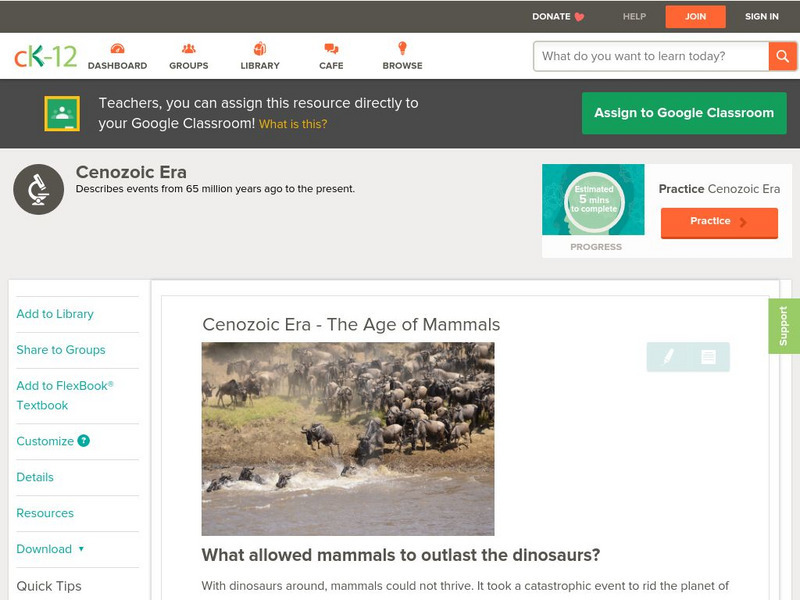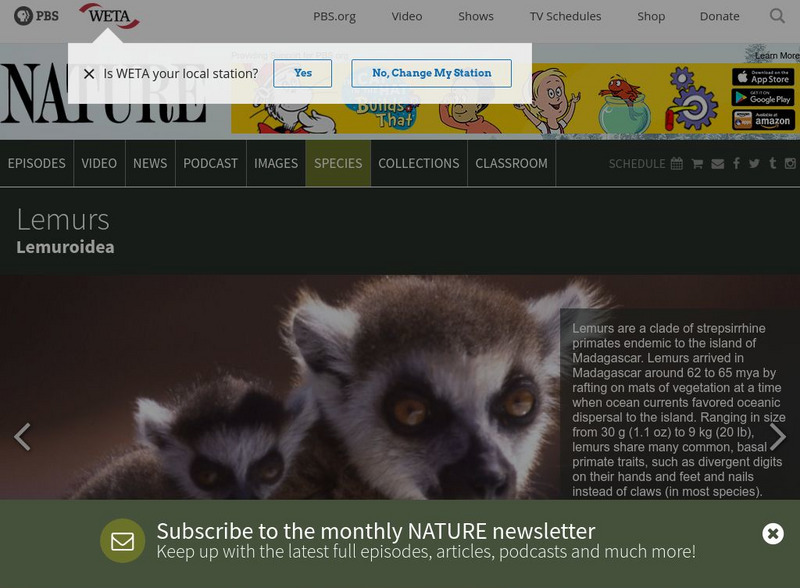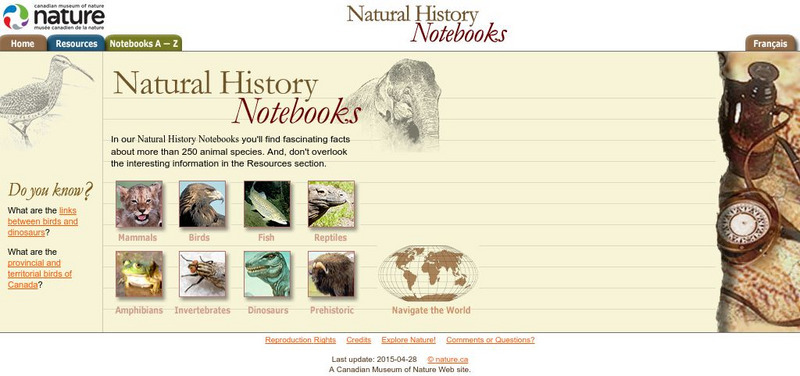Curated OER
Protect the Primates
Pupils make posters about saving the primates. In this primates lesson plan, students discuss primates and environmental changes and make posters with pictures about saving primates.
Curated OER
Molecular Sequences & Primate Evolution: Amino Acids, Hemoglobins in Evolution
Students compare differences in amino acids in the beta hemoglobin from representative primates, complete a matrix of those differences, and from these data, construct and interpret cladograms as they reflect relationships and timing of...
Curated OER
PRIMATE CLASSIFICATION: Evolution, Cladograms,
Students transfer examples (names) of primates from their location in an outline hierarchy of primate groups into a set of nested boxes reflecting that same hierarchy. A cladogram can then be drawn illustrating how these groups are...
Curated OER
From Restriction Maps to Cladograms
Biology aces analyze restriction maps to determine the relationships among different primate species and then complete a cladogram. Preface this instructional activity with an explanation of how restriction enzymes are used to create the...
Curated OER
Molecular Biology and Primate Phylogenics
By counting differences in amino acids, biology stars examine the relationships between different primates. With information gleaned, they map out a phylogenic tree and discover common ancestry. You will need to create printable versions...
Curated OER
Primate Evolution
In this primate evolution activity, students will compare 3 characteristics that all primates share. Then students will compare the traits of current primates to early man by completing 5 short answer questions.
Curated OER
The Earliest Primates
In this early primate activity, students will read information about the fossil evidence of the earliest primates. Students will complete 3 short answer questions based on their reading.
Curated OER
Safety in Numbers
Learners investigate social behavior patterns of primates. Next, students research a specific primate-analyzing individual and group behavior patterns particular to the species. They create informational posters and present findings to...
Curated OER
Proof of the Primate-ive Roots of AIDS
Young scholars explore recent breakthroughs in H.I.V. and AIDS research, as well as research various epidemics that have devastated the world population at various points in history.
Curated OER
The Origin of Humans
Where did human beings come from? How did they settle into communities and civilizations? Your class will find the answers in this fascinating presentation, which takes the viewer through the stages of mankind, from the primitive...
Curated OER
Bodyworks
Learners study about the different parts of their body and the names of bones as well. They gain an understanding of the function about the parts. Students follow along as the teacher guides them and points out various parts and their...
Curated OER
Creating Simple and Compound Sentences
For this sentence worksheet, students label a set of sentences as either simple, compound or run-on, 10 total. Worksheet is part of the Glencoe Online site.
Curated OER
Honesty In Reporting Research
Students view and discuss a video on dishonesty. Then they have a homework assignment to apply this discussion to household products that have resulted from scientific research which was falsified in order to get the product approved for...
Curated OER
Biology: Howler Monkeys Tell All
Students examine a PBS special about howler monkeys as an introduction to scientific forensic investigative methods. In groups, they conduct a host of experiments containing clues which point to discovery. By challenging assumptions,...
Curated OER
Breaking News English: Internet Trade Threatens Exotic Animals
In this English worksheet, students read "Internet Trade Threatens Exotic Animals," and then respond to 1 role playing, 47 fill in the blank, 7 short answer, 20 matching, and 8 true or false questions about the...
American Institute of Biological Sciences
Action Bioscience: Relative Scarcity: Apes on the Edge
Over the past fifty years the population of the great apes around the world has diminished rapidly. Statistics and reasons of their decline is the focus of this article and its resources.
Encyclopedia of Earth
Encyclopedia of Earth: Conservation Biology: Orangutan
Information about the orangutan: its scientific classification, physical features, reproduction, behavior, diet, habitat, threats to its survival, and efforts being taken to protect it. (Published: August 7, 2010)
San Diego Zoo Global
San Diego Zoo: Mangabey
This excellent resource from the San Diego Zoo presents extensive information on mangabeys including details about their habitat, physical characteristics, size, diet, family life, conservation status, and fun facts.
CK-12 Foundation
Ck 12: Biology: Cenozoic Era the Age of Mammals
[Free Registration/Login may be required to access all resource tools.] Covers the Cenozoic Era, the age of mammals.
PBS
Pbs Nature: Orangutans
Come and check out this awesome resource on orangutans. Students who need help narrowing their informational search will benefit from this clear and concise resource.
PBS
Pbs Nature: Lemur
What do you know about lemurs? This site provides an insight into how lemurs live, their habitats, their social environments and more.
Other
San Francisco Zoo: Red Ruffed Lemur
Meet the red-ruffed lemur, discover fascinating facts, and learn about their physical characteristics, diet, habitat, behavior, and conservation status.
Canadian Museum of Nature
Canadian Museum of Nature: Natural History Notebooks
This site from the Canadian Museum of Nature, a natural history museum, provides short information blurbs and fun facts on over 240 different common animals categorized by type (mammals, fish, reptiles, invertebrates, amphibians,...
Saint Louis Zoo
Saint Louis Zoo: Spectacled Langur
Discover fun facts and learn about the habitat, appearance, diet, and conservation status of the spectacled langur.























